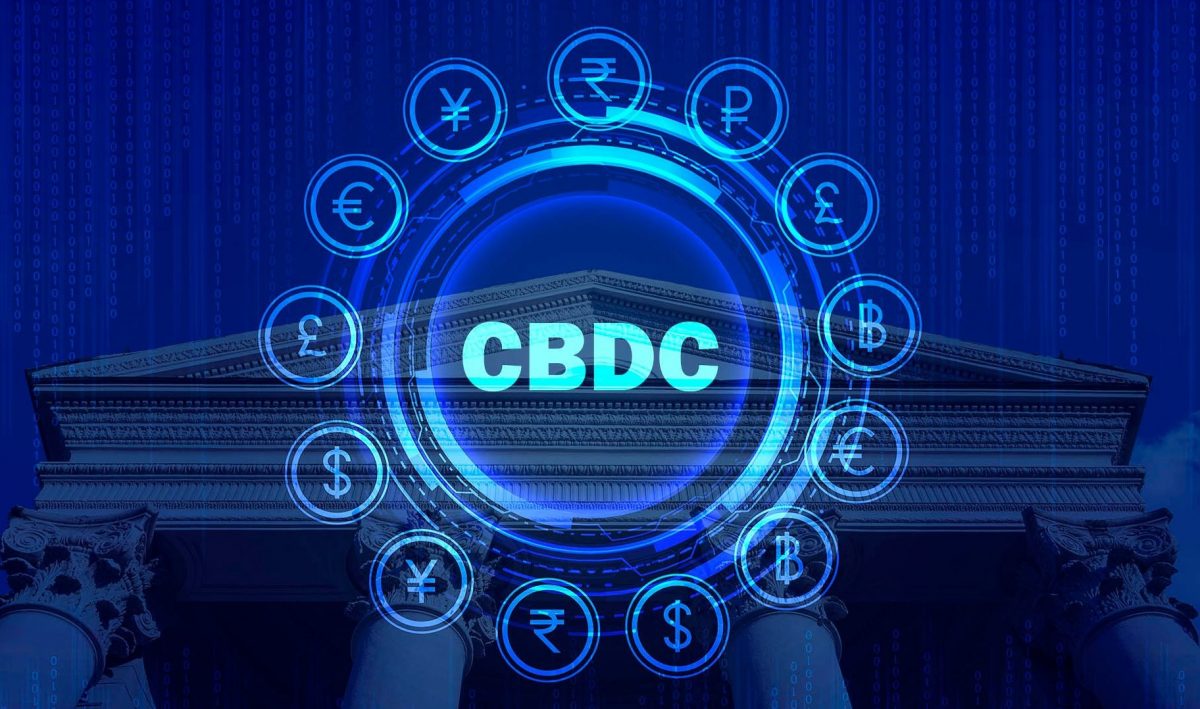Should CBDCs be Considered a Competitor to Cryptocurencies?
27.10.2024 21:00 2 min. read Kosta Gushterov
India's approach to cryptocurrencies and central bank digital currencies (CBDCs) is sparking debate, with some suggesting CBDCs could have advantages over private cryptocurrencies.
Sumit Gupta, CEO of CoinDCX, argued that CBDCs and cryptocurrencies like Bitcoin serve different purposes and should not be seen as competitors. His comments raised concerns within the crypto community about CBDCs resembling “digital fiat” and carrying inflation risks.
Gupta stated that CBDCs, issued by the central bank, allow for effective monetary policy management. However, skepticism remains, with critics like Jack Booth of TON Society warning that CBDCs could undermine personal sovereignty by giving government officials undue control over individual funds. This sentiment reflects a broader concern about the potential for CBDCs to exacerbate existing distrust in government institutions, particularly in Western nations.
While India has considered banning private cryptocurrencies, Gupta believes the country supports fintech innovation. He pointed to recent regulatory progress, including the Supreme Court’s decision to lift the Reserve Bank of India’s ban on crypto-related banking.
This ruling has provided a clearer path for crypto exchanges to operate under compliance with the Financial Intelligence Unit’s guidelines. Gupta urged the government to ensure compliance among all players and advocated for tax relief to prevent users from migrating to offshore platforms.
The discussion surrounding India’s regulatory framework is vital as the nation aims to strike a balance between fostering innovation and ensuring security in the burgeoning digital economy. As the global landscape for cryptocurrencies evolves, India’s decisions could significantly impact how the country positions itself in the competitive world of digital finance.
Embracing a regulatory approach that supports both CBDCs and cryptocurrencies could position India as a leader in the digital economy, attracting investment and talent to its tech ecosystem.
-
1
Binance Pushes Back Against FTX Lawsuit, Calls Claims “Baseless”
21.05.2025 8:00 2 min. read -
2
Ark Invest Buys Into eToro as Shares Surge on Nasdaq Debut
16.05.2025 8:00 1 min. read -
3
New Ethereum Initiative Targets Institutional-Grade Security Standards
16.05.2025 14:00 1 min. read -
4
JPMorgan CEO Warns Market Is Overlooking Risks from Tariff Tensions
22.05.2025 8:00 1 min. read -
5
FIFA Teams Up with Avalanche to Launch Its Own Blockchain
23.05.2025 9:00 1 min. read
Switzerland Prepares to Join Global Crypto Tax Network by 2026
Switzerland is gearing up to begin automatic crypto asset data sharing with over 70 countries, including all EU member states and the UK, as part of a broader push toward international tax transparency.
EU Eyes DeFi Rules Without Defining What It Is
As the European Union prepares for its next phase of crypto oversight, regulators are turning their attention to decentralized finance (DeFi)—without a clear definition of what decentralization actually means.
Yuga Labs Moves to Dismantle ApeCoin DAO in Favor of Centralized Structure
In a bold move to reshape the future of ApeCoin, Yuga Labs has introduced a proposal that would dissolve the existing ApeCoin DAO and replace it with a streamlined management body called ApeCo.
Russia Hits Pause on Expanding Crypto Mining Restrictions
In a surprising shift, Russia has shelved plans to widen its crackdown on crypto mining, choosing economic stability over stricter energy controls.
-
1
Binance Pushes Back Against FTX Lawsuit, Calls Claims “Baseless”
21.05.2025 8:00 2 min. read -
2
Ark Invest Buys Into eToro as Shares Surge on Nasdaq Debut
16.05.2025 8:00 1 min. read -
3
New Ethereum Initiative Targets Institutional-Grade Security Standards
16.05.2025 14:00 1 min. read -
4
JPMorgan CEO Warns Market Is Overlooking Risks from Tariff Tensions
22.05.2025 8:00 1 min. read -
5
FIFA Teams Up with Avalanche to Launch Its Own Blockchain
23.05.2025 9:00 1 min. read


